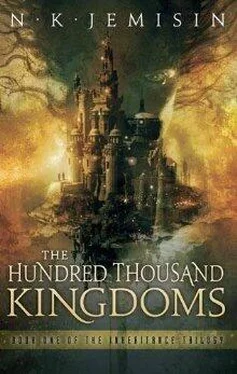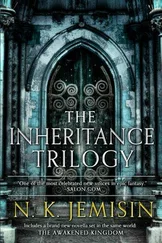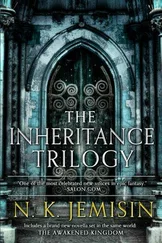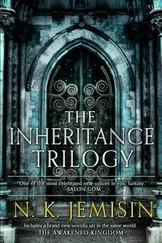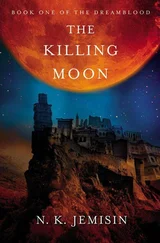As the Conspirators are in fact prisoners of war, and we of the family are in fact their jailors, understanding the concept of affinity is essential as it represents our only means of imposing discipline.
Additionally, we must understand the restrictions imposed upon them by Our Lord. The primary and common means by which the Conspirators have been limited is corporeality . It has been observed that a god’s natural state is immaterial, [6] Hereinafter referred to as aetheric per Litaria standard terminology, 4th progression.
thus permitting the god to draw upon immaterial resources (e.g., the motion of heavenly bodies, the growth of living things) for sustenance and normal function. The Conspirators, however, are not permitted to enter the aetheric state and are instead required to maintain a physical locality at all times. This restricts their range of operability to the limits of their human senses, and it restricts their power to that which may be contained by this material form. [7] Scrivener Pjors, in “The Limitations of Mortality” ( Munae Scrivan , pp. 40-98), argues that no other mortals have been able to achieve comparable power, and therefore the Conspirators’ abilities clearly exceed the material. Consensus within the Scriveners’ College and Litaria holds that this is the purposeful doing of Our Lord, who intended that the Conspirators retain enough godly might to be of use in the aftermath of the Gods’ War.
This restriction also requires them to ingest food and drink in the mortal fashion in order to maintain strength. Experiments [8] Family Notes, various, volumes 12, 15, 24, and 37.
have shown that when deprived of sustenance or otherwise physically traumatized, the Conspirators’ magical abilities diminish greatly or entirely until they have returned to health. Due to the Stone of Earth’s role in their imprisonment, however, they perpetually retain the ability to regenerate aged or damaged flesh and revive from apparent death, even when their bodies are virtually destroyed. Therefore it is a misnomer to say that they have “mortal forms”; their physical bodies are only superficially mortal.
In the next chapter, we will discuss the specific peculiarities of each of the Conspirators, and the means by which each might be better controlled.
APPENDIX 3
Historical Record; Arameri Family Notes volume 1, from the collection of Dekarta Arameri.
(Translated by Scrivener Aram Vernm, year 724 of the Bright, may He shine upon us forever. WARNING: contains heretical references, marked “HR”; used with permission of the Litaria.)
You will know me as Aetr, daughter of Shahar—she who is now dead. This is an accounting of her death, for the records and for the easing of my heart.
We did not know there was trouble. My mother was a woman who kept her own counsel at the best of times; this was a necessity for any priestess, most of all our brightest light. But High Priestess Shahar—I will call her that and not Mother, for she was more the former than the latter to me—was always strange.
The elder brothers and sisters tell me she met the Dayfather (HR) once, as a child. She was born among the tribeless, those outcasts who pay no heed to any god or any law. Her mother took up with a man who viewed both mother and child as his property and treated them accordingly. After one torment too many Shahar fled to an old temple of the Three (HR), where she prayed for enlightenment. The Dayfather (HR) appeared to her and gave her enlightenment in the form of a knife. She used it on her stepfather while he slept, removing that darkness from her life once and for all.
I say this not to slander her memory, but to illuminate: that was the kind of light Shahar valued. Harsh, glaring, hiding nothing. I make no wonder Our Lord treasured her so, because she was much like Him—quick to decide who merited her love, and who did not (HR).
I think this is why He appeared to her again on that terrible day when everything began to weaken and die. He simply showed up in the middle of the Sunrise Greeting and gave her something sealed in a white crystal sphere. We did not know at the time that this was the last flesh of Lady Enefa (HR), now gone to twilight Herself. We knew only that the power of that crystal kept the weakening at bay, though only within the walls of our temple. Beyond it, the streets were littered with gasping people; the fields with sagging crops; the pastures with downed livestock.
We saved as many as we could. Sun’s Flame, I wish it could have been more.
And we prayed. That was Shahar’s command, and we were frightened enough that we obeyed even though it meant three days on our knees, weeping, begging, hoping against all hope that Our Lord prevailed in the conflict tearing apart the world. We took it in shifts, all of us, full ordinates and acolytes and Order-Keepers and common folk. We pushed aside the exhausted bodies of our comrades when they sagged from weariness, so that we could pray in their place. In between, when we dared look outside, we saw nightmares. Giggling black things, like cats but also monstrous children, flowed through the streets a-hunting. Red columns of fire, wide as mountains, fell in the distance; we saw the entire city of Dix immolated. We saw the shining bodies of the gods’ children falling from the sky, screaming and vanishing into aether before they hit the ground.
Through this all, my mother remained in her tower room, gazing unflinchingly at the nightmare sky. When I went to check on her—many of our number had begun killing themselves in despair—I found her sitting on the floor with her legs crossed, the white sphere in her lap. She was growing old; that position must have hurt her. But she was waiting, she said, and when I asked her what for, she gave me her cold, white smile.
“For the right moment to strike,” she said.
I knew then that she meant to die. But what could I do? I am only a priestess, and she was my superior. Family meant nothing to her. It is the way of our order to marry and raise children in the ways of light, but my mother declared that Our Lord was the only husband she would accept. She got herself with child by some priest or another just to satisfy the elders. I and my twin brother were the result, and she never loved us. I say that without rancor; I have had thirty years to come to terms with it. But because of this, I knew my words would fall on deaf ears if I tried to talk her out of her chosen course.
So instead I closed the door and went back to my prayers. The next morning there was an awful thunderclap of sound and force that seemed likely to blow apart the very stones of the Temple of Daylight Sky. When we picked ourselves up from this, amazed to find that we were still alive, my mother was dead.
I was the one that found her. I, and the Dayfather (HR), who was there beside her body when I opened the door.
I fell to my knees, of course, and mumbled something about being honored by His presence. But in truth? My eyes were only for my mother, who lay sprawled on the floor where I had last seen her. The white sphere was shattered beside her, and in her hands was something gray and glimmering. There was sorrow in Lord Itempas’s eyes when He touched my mother’s face to shut her eyes. I was glad to see that sorrow, because it meant my mother had achieved her fondest wish: pleasing her lord.
“My true one,” He said. “All the others have betrayed me, save you.”
Only later did I learn what He meant—that Lady Enefa (HR) and Lord Nahadoth (HR) had turned on Him, along with hundreds of their immortal children. Only later did Lord Itempas bring me His war prisoners, fallen gods in invisible chains, and tell me to use them to put the world to rights. It was too much for Bentr, my brother; we found him that night in the cistern chamber, his wrists slit in a barrel of wash water. There was only me to bear witness, and later to bear the burden, and right then to weep, because even if a god did honor my mother, what good did that do? She was still dead.
Читать дальше
